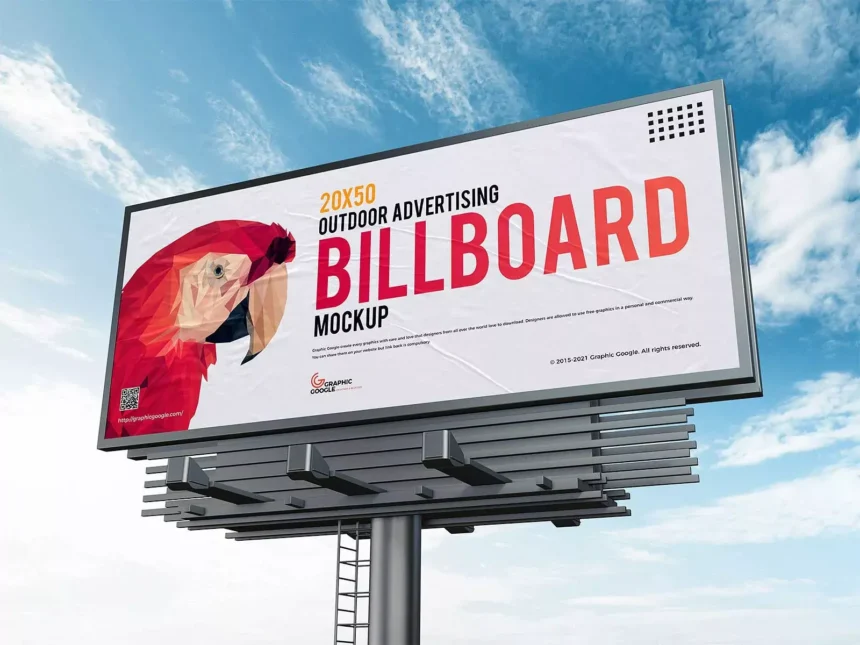The global signage market is projected to witness a compound annual growth rate, CAGR, of 6.3% between 2022 and 2031 reaching a $6.33 Billion mark. Generally, the signage market size as at 2022 is about $34.4Billion. Meanwhile, it is difficult to accurately determine the volume of the signage market in Nigeria. In fact, some Nigerians consider the signage industry as very private – a business shrouded in an enclosure and difficult to penetrate. Most people do not really understand what constitutes signage; and how it differentiates from sign-writing, branding, or advertising. In this interview with Desmond Ekeh, Uwamai Igein, a chartered accountant, who has been in the signage business for over two decades explains the workings of the signage business and the values of the industry to the economic development of the country.
Could you please introduce yourself and Dormai to our readers?
My name is Uwamai Igein. I am the MD/CEO of Dormai Signs Ltd. The company has been existing since 2018. I had previously worked in various organisations including Oluyomi Ladeinde & Co., a firm of Chartered Accountants, Lenoil Petroleum & Petrochemical, and International Messenger Nigeria Ltd. (now UPS). I was also the MD/CEO of Light Level Ltd., where I served for over 23 years. I have a degree in Accountancy and holds an MBA in Finance both in Nigeria and in the UK. We see Dormai Signs as a partner to all the organisations that we service. We don’t see them as our clients, and do not see ourselves as mere vendors. No. We are their partners working to support them to achieve their business goals. Some of them such as UBA, FCMB, Access Bank, Rainoil, Eterna, and others have been with us over the years. We are very passionate about our brand hence we ensure we deliver beyond expectations in terms of quality of work, turn-around time, and relationship management. We advise and suggest the best materials usage for production and best placement to ensure optimum visibility. Signage is all about visibility and differentiation from the crowd. We are grateful that the organisations we service place great trust in our work and we do not take it for granted. We work to surpass their trust quotient in us. We push beyond the threshold.
The signage business does not appear to be popular among Nigerians. What is it all about. What do you people do?
That statement is a misconception. Signage is a very popular business with presence in every nook and cranny of our national landscape. As a business its entry and operation are clear and those who are interested in practicing in the industry know where to get appropriate information about the business and the practice. Signage business is like any other professional practice. You learn the art and science of the practice, and then you are inducted into the business via various routes including – initial engagement in the study in a tertiary institution, and subsequent recruitment in a signage company to become a staff of the company and in which case you can grow through the ranks or you choose to establish your own business after you have acquired experience in the course of working with another signage company.
In your own case how did you enter the business?
In my own case I had worked as an accountant in several companies, including as an auditor in a consulting firm. When I got a job in the signage company I started as an auditor and manager; but along the line I began to take interest in the production aspect of the business. In the process I realised that the business involves various aspects including graphic design and illustration, production and fabrication, marketing, operations, and management. Just like any other manufacturing and production business, there are a retinue of professionals in different departments required to accomplish specific organisational tasks. I deliberately studied the entire process and today I can work across the spectrum of the business process including the technical aspects such as fabrication and production. After about two decades in the industry, I decided to establish Dormai Signs
As an Accountant who veered into signage, what is your experience so far, and how does your background impact your business offerings to your clients?
As an accountant I am trained to manage businesses and produce returns. The platform or business type is not really the problem. The issue is effective management and accounting processes to produce profitable and sustainable business. Right now, I believe that our business partners including but not limited to Nigerian Exchange, Consolidated Hallmark Insurance, Momas, Transcorp Hilton Hotel, Lotus, Parralex, and others are enjoying our services as a signage company because we put in our best; and my experience as an accountant and management background plays a role in satisfying our clients with our service offering.
So, how do you differentiate signage from sign-writing, branding, and advertising?
This is a question I get asked very often. The connection is intricate and yet distinct. Generally, signage, sign-writing, branding, and advertising are various forms of communication used singularly or collectively to provide information or to promote products, services, and ideas. They are focused on achieving the same goal using different methods. Different scholars and professionals describe this intricate relationship in various ways. Signage is any type of visual graphic or message that is used to convey information to an audience. For some professionals signage means a sign that directs attention to a business, commodity, service, industry or other activity that is sold, offered, or conducted, other than incidentally, on the premises upon which such sign is located, or to which it is affixed. Whereas sign-writing is any kind of visual graphics created to display information to a particular audience. This is typically manifested in the form of way-finding information in places such as streets or on the inside and outside buildings. Signs vary in form and size based on location and intent, from more expansive banners, billboards, and murals, to smaller street signs, street name signs, sandwich boards and lawn signs. If you notice, recently, especially with the deepening of emerging technologies, newer signs may also use digital or electronic displays. Signs, however, are best known in the form of painted or carved advertisements for shops, inns, cinemas, etc. They are one of various emblematic methods for publicly calling attention to the place to which they refer. Signs are typically used to give directions or warn of danger, while signage is mainly used in relation to the advertising and information of goods, services or ideas to a specific audience. Advertising is the use of paid media such as TV, radio, newspaper, and others to promote a product, service, or message. Alternatively, promotional signage may be designed to persuade receivers of the merits of a given product or service. Signage is distinct from labelling, which conveys information about a particular product or service. I agree with the position that the rise of a consumer culture prompted the commercial investment in carefully managed company image, retail signage, symbolic brands, trademark protection and sophisticated brand concepts. Branding is a process of creating unique propositions using branding artifacts, and signage. You can also say that signage can be used as instruments for advertising purposes.
What role does the signage industry play in the Nigerian economy?
The signage industry plays a crucial role in the development of the Nigerian economy. This it does through three main thematic frameworks, namely – Cognitive value, Symbolic value, and Functional utility. From the cognitive value you can imagine entering Ikeja City Mall without signages. Signage is the fundamental logic of branding. Through signage products imprints are elevated into brands – and brands are the differentiating factor of any business. Branding through signage creates the utility of product authenticity and unique positioning in the mind of the consumer. If you remove all the signage imprints in all products at the Mall the whole place becomes empty and naked. Life becomes meaningless without signage trails. Brands appropriate their meanings from the signage imprints. From the symbolic perspective it is the signage imprints that creates the symbolic artifacts that imprints luxury in the minds of the consumers. Why does a product sell for one hundred thousand naira while competitors of the same product category sell for much sell? It is the function of branding. And what is branding without signages. Luxury brands create a sense of aspiration, which in itself translates to a new market called the luxury brand industry. Then a more fundamental aspect of signage industry is the functional utility perspective that creates hundreds and thousands of businesses that employ millions of workers and rakes in billions of dollars for the economy. The figure from the international market gives you a glimpse of the value of the industry in terms of revenue generation for the country. The signage industry is a big revenue booster to the national economy.
What challenges do you face in the signage industry
The industry is matured in the international markets in Europe, US, and Asia. However, it is still emerging in this part of the world and in Nigeria particularly. Some of our challenges are not peculiar to what companies in the manufacturing sector suffer. They are many but just to mention the issue of power or cost of energy, high cost of credit facility and inadequacy of loanable funds, unavailability of raw materials and delay in receiving imported raw materials to augment our locally sourced materials, and lack of enough trained manpower. Then there is the issue of multiple taxation, levies, and charges, from government agencies. There is also the issue of lack of data. Today, you know that data play a great role in taking informed and strategic business decisions especially because you are competing in the global market.
How do you rate the Nigeria economy?
Generally speaking, the global rise in commodity prices, inflationary pressure, and slow growth in many advanced economies also have effect in our domestic economy. In addition, the nature of our politics and economic policies have not helped matters. Any discerning Nigerian knows that the economy is tottering right now. The dollar which is a major currency in most of our international business and life transactions has gone to an all-time high at the rate of N1,600 naira or more per dollar in the parallel market, making our naira weak. Real income is yet under pressure as inflation climbs to about 24.43 % March this year with no sign of abating and national minimum wage remains a thorny and unchanged issue in the short term. All these combines to create a sluggish economy leaving millions in poverty. We know that doing business in Nigeria now is really very challenging. However, there is a government in place, and we are hoping that they will tackle the issues confronting our economy so that businesses can thrive and life made easy for our people.
How do you want the government to support your industry?
We belong to the manufacturing sector. We look forward to government intervention in the area of the dollar by providing preferential foreign exchange rate to the manufacturing sector for the importation of appropriate raw materials and machinery for production. Of course, without stable power supply we cannot use the machines and dependence on alternative power generating sources increases our production cost which subsequently affects market demand and our production level. Government should also re-evaluate the nations’ economic and industrial policies, develop infrastructures, promote research and development, and create a training regime that prioritises technical skills and technology-driven education.
Where do you see your company in the next five years?
We are trusting God that in the next five years Dormai Signs would have acquired more capabilities to serve more organisations satisfactorily. We hope to engage more workers and increase the capacity of the industry to enhance the national economy. Beyond being a corporate business, we also engage in community relations within our own level. We hope to impact our community in a more meaningful fashion.







